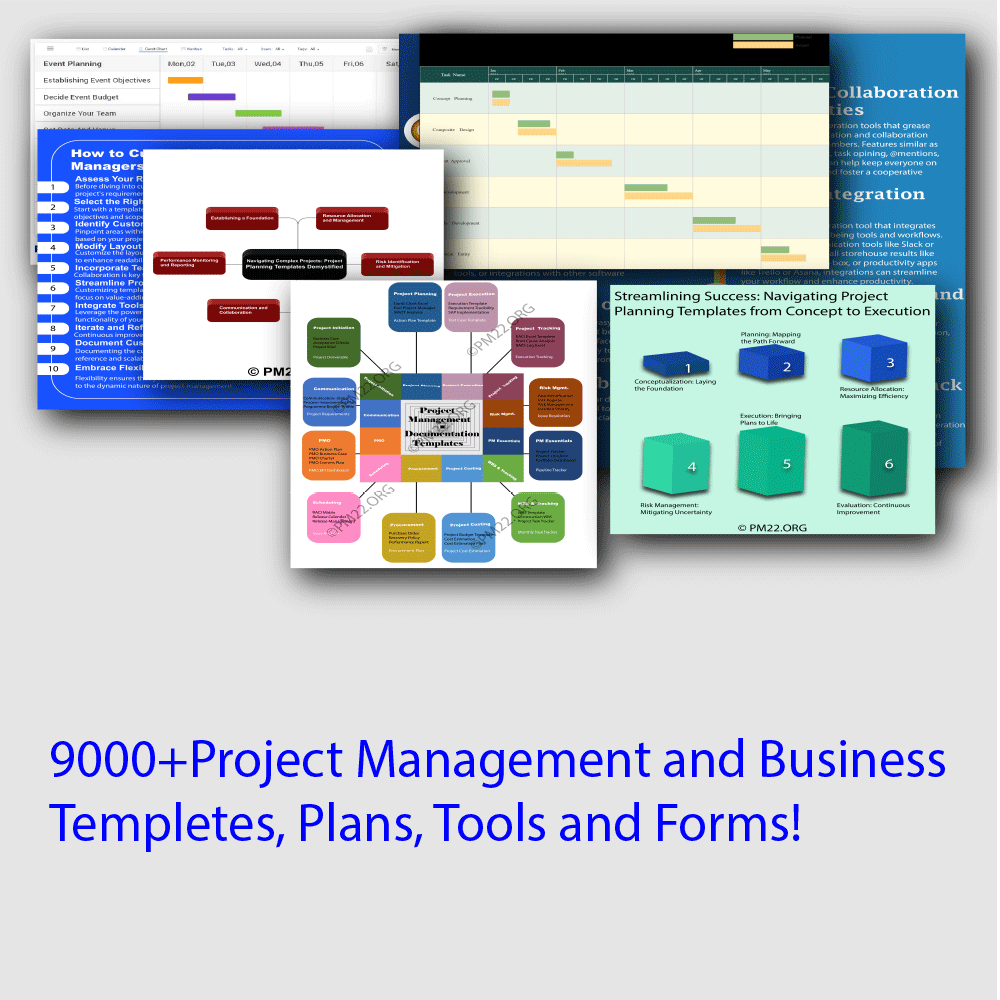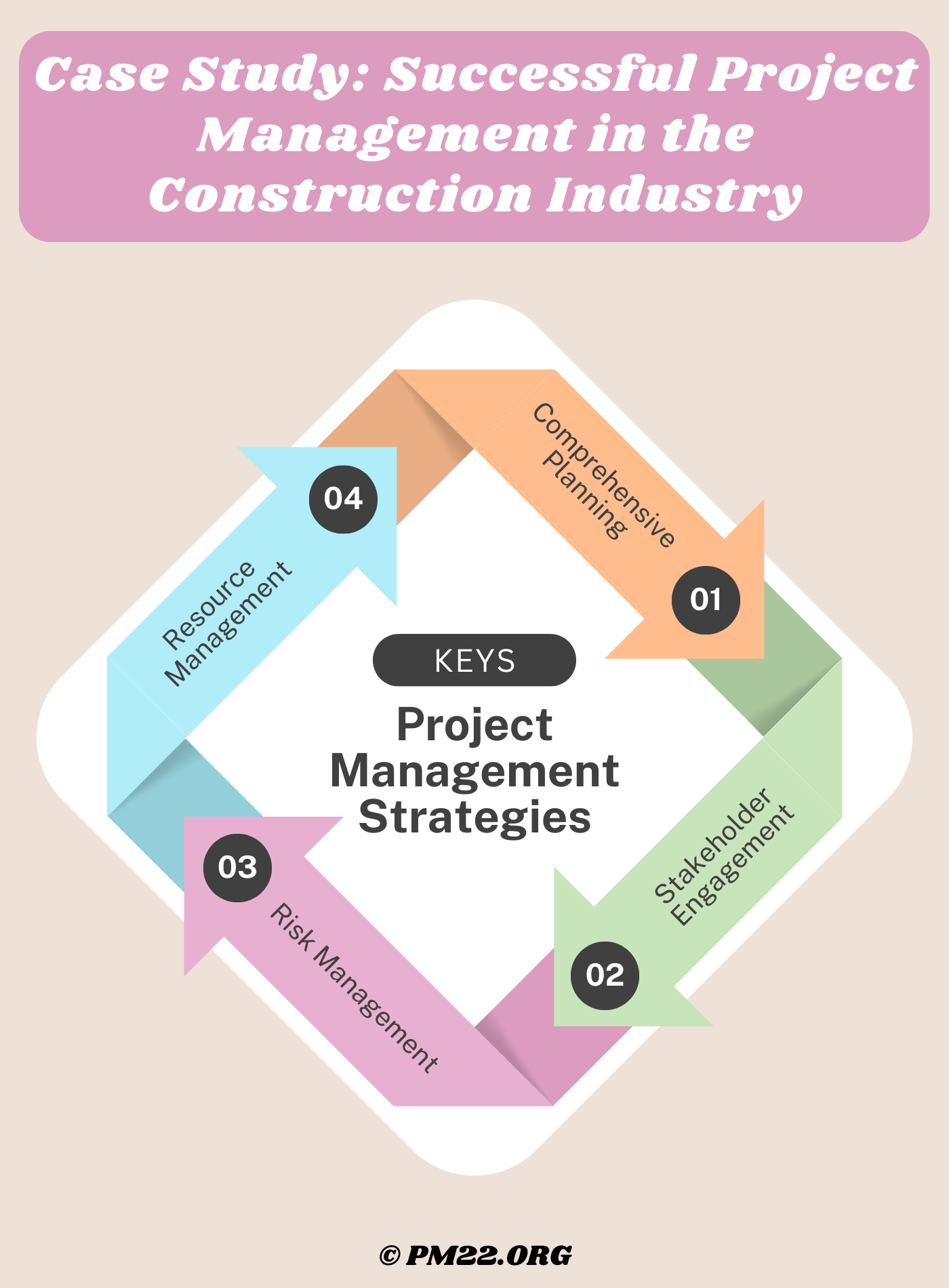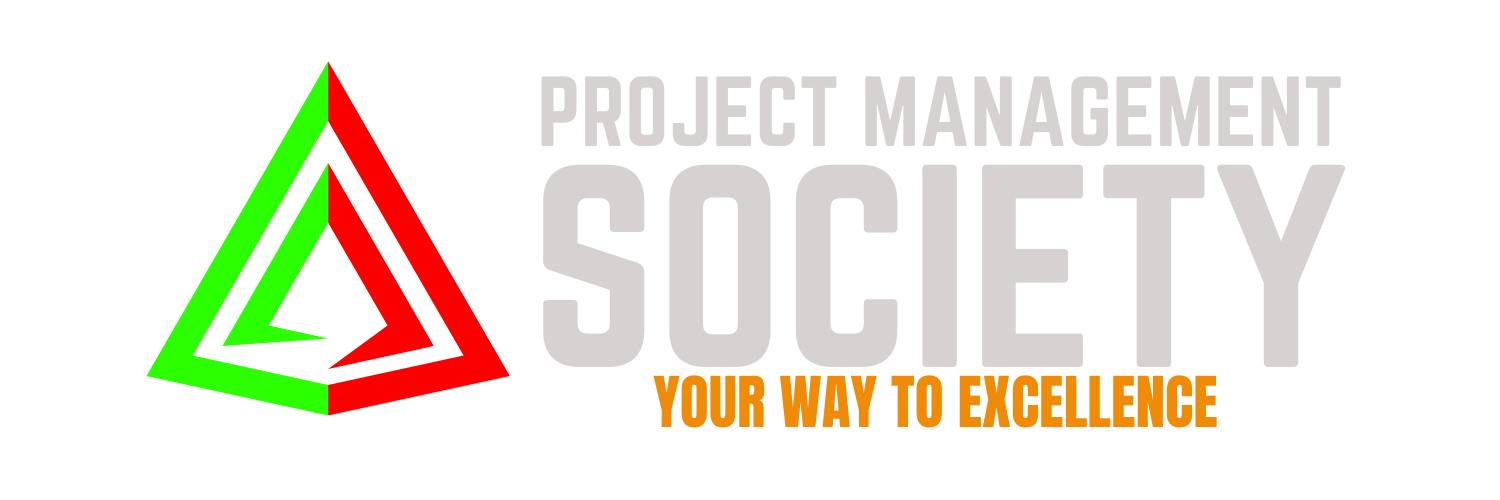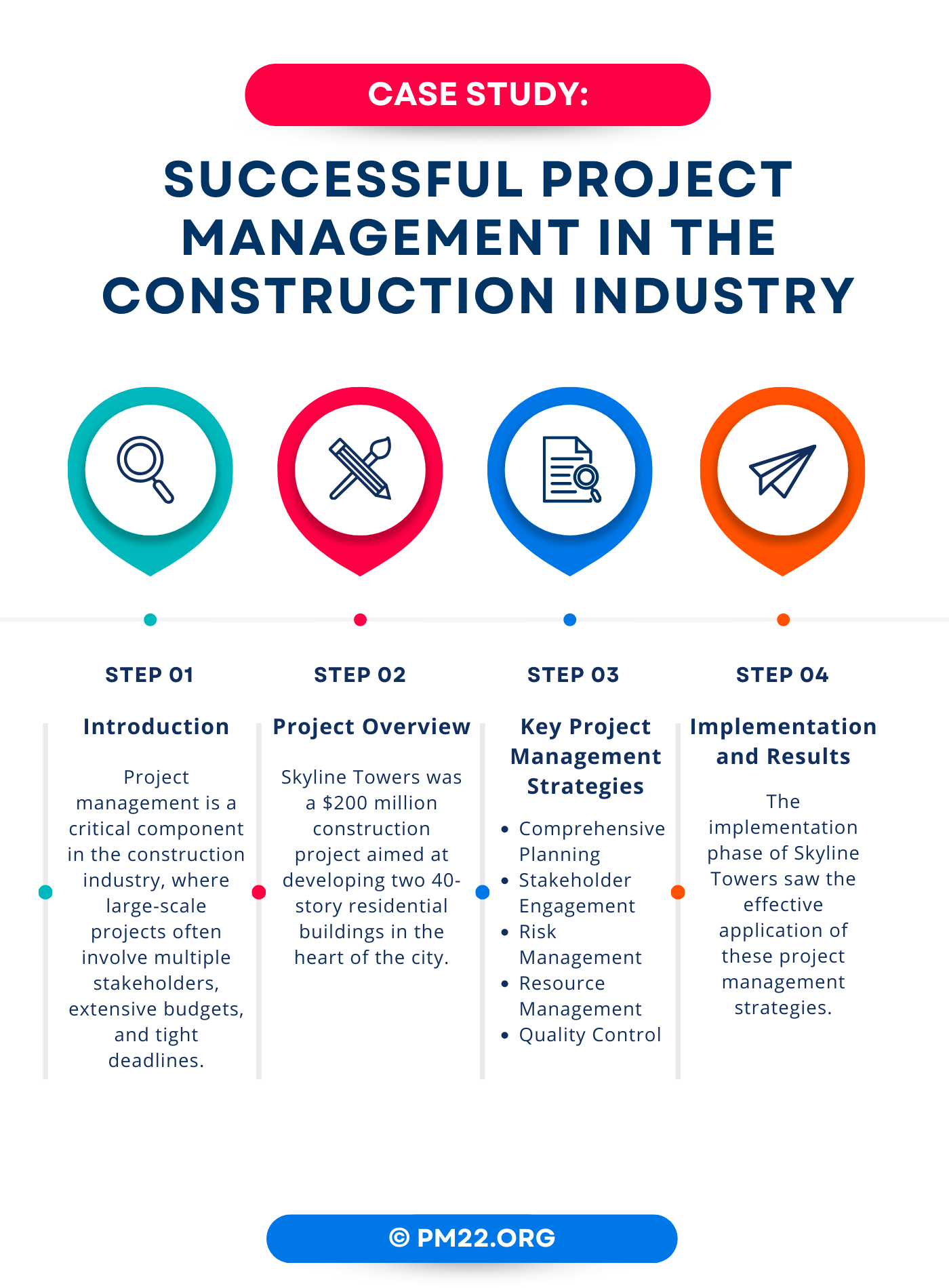Project management is a critical component in the construction industry, where large-scale projects often involve multiple stakeholders, extensive budgets, and tight deadlines. This case study examines the successful project management of the “Skyline Towers” project, a high-rise residential development in an urban area. The project was lauded for its adherence to timelines, budget management, and quality standards, showcasing the effectiveness of robust project management practices.
Project Overview
Skyline Towers was a $200 million construction project aimed at developing two 40-story residential buildings in the heart of the city. The project, initiated by Urban Developments Inc., aimed to provide luxury apartments with state-of-the-art amenities. The timeline was set for four years, with the goal of handing over the keys to the first residents by the end of the fourth year.
Key Project Management Strategies
- Comprehensive Planning: The project began with meticulous planning. A detailed project charter was developed, outlining the scope, objectives, timelines, budget, and key milestones. Urban Developments Inc. utilized advanced project management software to create a detailed work breakdown structure (WBS) and Gantt charts, ensuring that every phase of the project was clearly defined and scheduled.
CLICK HERE TO DOWNLOAD 300+ PROJECT MANAGEMENT TEMPLATES & DOCUMENTS IN EXCEL
- Stakeholder Engagement: Successful management of Skyline Towers involved active and continuous stakeholder engagement. Regular meetings were held with investors, city officials, contractors, and future residents to ensure transparency and address any concerns promptly. A dedicated stakeholder management plan helped in mapping out the interests and influence of all parties involved, facilitating smooth communication and collaboration.
- Risk Management: The project team conducted a thorough risk assessment at the outset, identifying potential risks such as financial fluctuations, supply chain disruptions, and regulatory changes. A risk management plan was developed, including strategies for risk mitigation and contingency plans. This proactive approach allowed the team to address issues swiftly and prevent major setbacks.

- Resource Management: Effective resource management was crucial for the timely completion of Skyline Towers. The project manager ensured that the right resources, including skilled labor, materials, and equipment, were available as needed. A resource allocation plan was put in place to optimize the use of resources, avoid bottlenecks, and manage costs effectively.
- Quality Control: Quality control was maintained through stringent standards and regular inspections. An independent quality assurance team was appointed to oversee the construction process, ensuring that the work met the highest standards. Regular audits and inspections helped in identifying and rectifying any deviations from the project specifications.

Implementation and Results
The implementation phase of Skyline Towers saw the effective application of these project management strategies. The project management team utilized a combination of traditional and agile methodologies to stay adaptable to changes. This hybrid approach enabled them to maintain control over the project while remaining flexible to adjustments as needed.
CLICK HERE TO DOWNLOAD 300+ PROJECT MANAGEMENT TEMPLATES & DOCUMENTS IN EXCEL
As a result, Skyline Towers was completed two months ahead of schedule and within the allocated budget. The final product exceeded quality expectations, earning praise from stakeholders and future residents alike. The proactive risk management strategies ensured that potential disruptions were mitigated effectively, and resource optimization led to significant cost savings.
Conclusion
The Skyline Towers project stands as a testament to the power of effective project management in the construction industry. By employing comprehensive planning, active stakeholder engagement, robust risk management, efficient resource management, and stringent quality control, Urban Developments Inc. successfully delivered a complex project. This case study underscores the importance of these strategies in achieving project success and highlights the potential for these practices to be replicated in similar large-scale construction projects.

